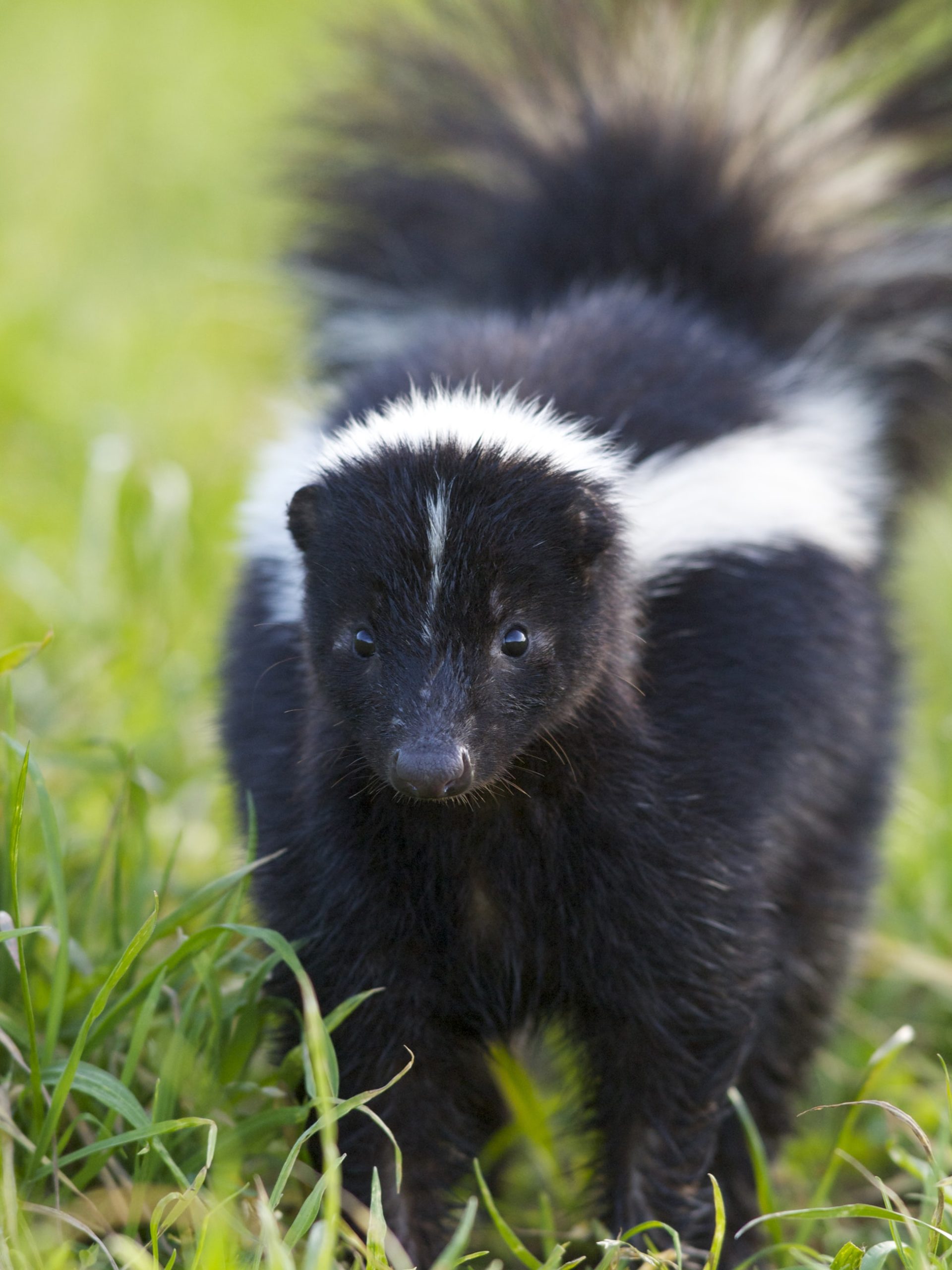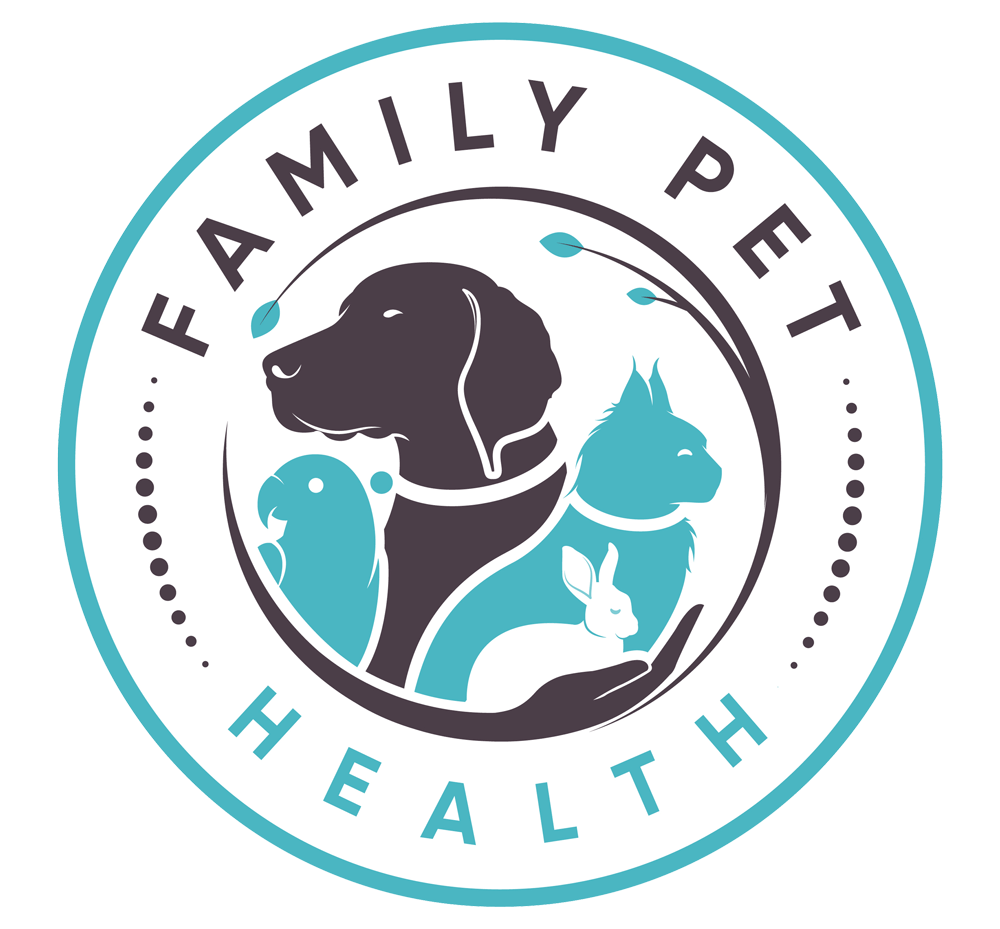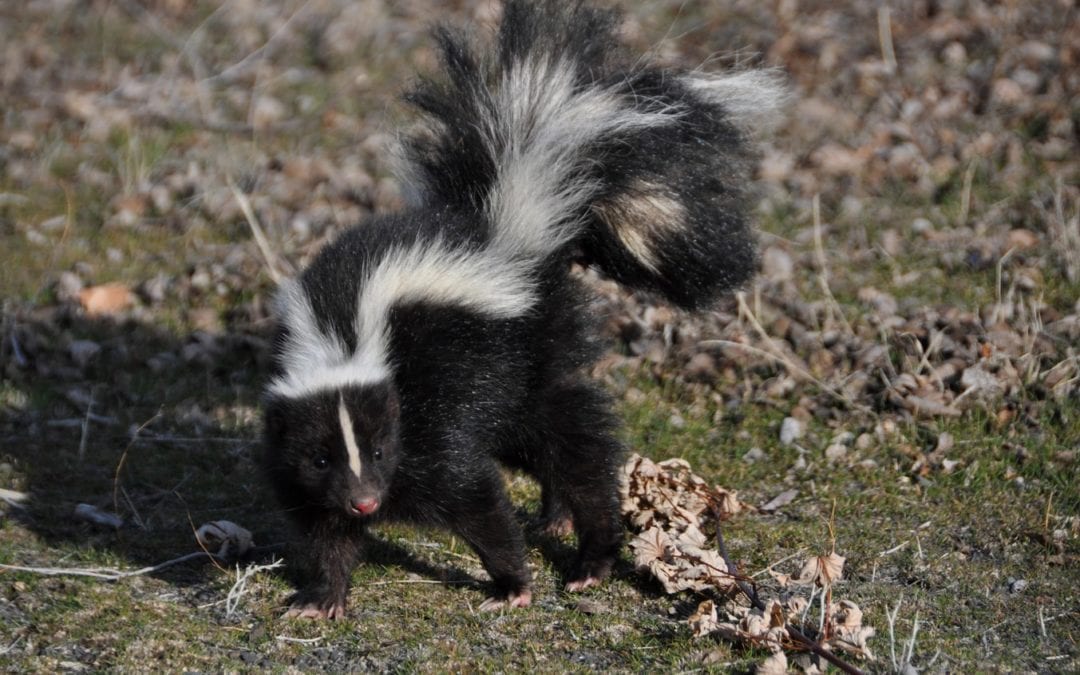Love is in the air as February is the month of love. Although Valentine’s Day chocolates are a danger to our pets and should be kept out of reach, another threat this time of year is skunks. Skunks are much more active during the month of February during their breeding season. Keeping yourself and your pets in a skunk smell-free lifestyle is an obvious goal for everyone, but there are other hidden dangers of skunks that you need to keep in mind.
Skunks are one of the top carriers of rabies in Middle Tennessee with up to 20% of skunks positive for the virus. If your pet decides to attack a skunk which is infected by rabies and you don’t have your pet with an up-to-date rabies vaccine, they may have to be put down immediately. It is vital that your dog or cat is vaccinated for rabies, both because it is legally required but also for their own safety. Rabies vaccines are easy to administer and keep up with. Your pet may even qualify for a 3-year vaccination which makes the process even easier.

No one wants to deal with a skunk spray, so reducing the chances of your pet getting sprayed is especially important this month. Avoid leaving food outside of your house as it attracts skunks. Fasten and secure garbage cans to prevent them from falling over and spilling their contents on the ground where skunks can gain access. If you have an outside pet, make sure to remove any remaining food after 10 minutes of feeding so as to not attract any odorous visitors. Eliminate all brush piles and ensure all entryways under your shed or house are blocked off to prevent skunks from nesting around your house. Skunks are nocturnal and most active at night time so be cautious when taking your pet on walks at night. Skunks have incredibly poor eyesight but their hearing is really good. Making a noise or simply talking to your pet on the walk may be enough to make a skunk run off in the other direction and leave your area.
If your dog or cat does happen to encounter a skunk there are several steps you should take. First, check for any wounds and see if your pet was sprayed in the eye. If either of these occurred, contact a veterinarian immediately. If your pet was just sprayed and nothing was in the eyes, the commercial “Skunk-Off” shampoo is an option for cleaning them. You might also create your own mixture with items you may have in your home. You mix a quart unopened 3% hydrogen peroxide, a quarter cup baking soda, and a teaspoon of Dawn dish soap. Wash your pet with solution and lukewarm water, focus on the area that was directly hit and really work the mixture into the pet’s fur and skin. Let sit for 8 to 10 minutes and rinse off with lukewarm water. Do not put this mixture into the pet’s face. Furthermore, recognize that this mixture may bleach your pet’s fur and it is not storable. While tomato juice is a common strategy people use to deal with skunk spray, the method doesn’t wash the skunk spray off. The tomato juice is really only masking the smell.
Sometimes even if you take all precautions, your pet will be sprayed or get in a fight with a skunk. The most important takeaway from skunk and pet interaction is keeping your pet vaccinated. The skunk spray smell will go away, but if your pet gets infected with rabies because it wasn’t vaccinated, that is a permanent end to your pet’s life.
About Family Pet Health, PLLC
Family Pet Health is located at 3307 Manchester Pike in Murfreesboro. The practice, owned by Dr. Amy Shirley and her husband Michael, is a small and exotics animal veterinary hospital. They provide a full range of veterinary services including exams and vaccinations, lab work and diagnostics, surgeries and referral services. All of their staff members are Fear Free certified and have undergone extensive training on recognizing and reducing signs of fear, anxiety and stress in their patients. Learn more at www.familypethealth.com.

